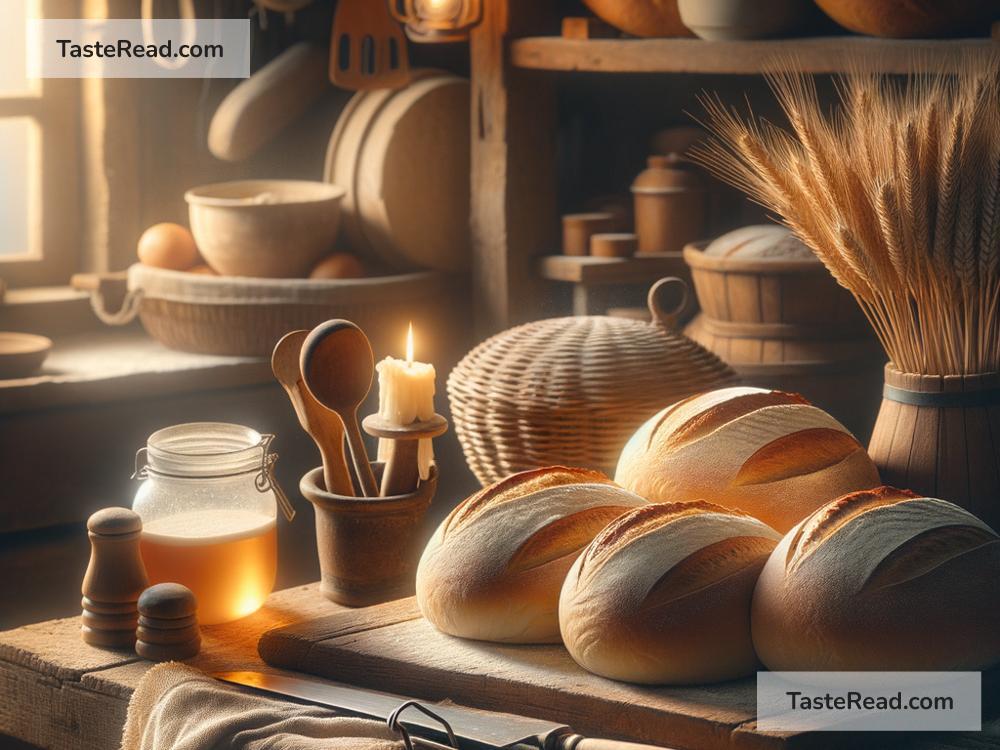The Legend of the Bread That Never Hardens
Bread has always been one of humanity’s most cherished foods. It’s simple, comforting, and comes in countless varieties. Whether you’re munching on sourdough, pita, or rye, bread has a universal appeal that transcends cultures and languages. But one curious legend has captured imaginations for generations—the legend of the bread that never hardens.
What does this mean? Is there really a magical loaf of bread that stays fresh forever? Let’s dive into the story behind this fascinating myth, explore its origins, and discover why it continues to intrigue people.
The Beginning of the Legend
The story of the bread that never hardens dates back hundreds of years, though no one knows exactly where it started. Some say it originated in ancient Europe during periods of famine and hardship. Others trace it to Asia, where mythical tales surrounding food were common.
The legend speaks of a baker—some versions describe him as poor, others as wealthy—who created an extraordinary loaf of bread. The bread stayed soft, fresh, and delicious no matter how much time passed. According to some versions of the story, the bread was so magical that even after weeks or months, it tasted as though it had just come out of the oven.
Some say the baker discovered this ability by accident. He mixed dough using water from a sacred spring, or he unknowingly added a special ingredient gifted by the gods. Others claim he intentionally sought to create bread capable of defying time, wanting to help his starving village survive the harsh winters.
Whichever version you hear, the idea is the same: the baker’s creation became legendary because it solved one of humanity’s biggest food-related struggles—keeping bread edible and soft over time.
The Role of Magic and Folklore
In most versions of the legend, magic plays a crucial role. Bread, by nature, starts going stale just hours after it’s been baked. If exposed to air, it grows dry; if left for too long, it can harden completely. For people long ago, this was a significant inconvenience. Fresh bread was important for meals, but making it often took time and effort. The idea of bread that could resist staling seemed like a miracle.
This is why the tale of a never-hardening loaf resonated with so many people. It suggested that through a bit of magic—or divine intervention—life could be made easier.
Many versions of the story have mystical twists. In one version, the baker makes a deal with a woodland fairy. She grants him the ability to create eternal bread but warns him to use his gift only for charity, not selfish gain. When the baker starts selling his bread for a fortune, the fairy curses him, and his bread turns to stone.
In another version, a wandering wise man blesses the baker with a magical recipe after seeing his kindness toward strangers. The bread helps save an entire village from starvation during a long famine.
Modern Interpretations
The legend of the bread that never hardens has taken on new meanings in the modern age. Today, people share this story not only as a fascinating folktale but also as a symbol of hope, perseverance, and creativity.
In the culinary world, bakers and scientists are constantly experimenting with ways to prolong the freshness of bread. While we haven’t quite cracked the code to eternal bread, advancements in food preservation—including freezing, packaging, and additives—come close. Commercially processed bread often stays soft for days or weeks, though it doesn’t always have the homemade flavor we love.
Some also relate the story to psychology—seeing the bread as a metaphor for resilience. Just as the mythical bread defies time, we too can overcome life’s challenges and adapt to keep moving forward.
Why It Still Captures Our Imagination
Part of the charm of this legend lies in its simplicity. Bread, after all, is one of the oldest foods humans have made. It represents community, nourishment, and survival. A loaf of bread that never hardens evokes a sense of abundance—an end to hunger and waste.
The tale also connects us to the human desire for perfection. Throughout history, people have tried to improve themselves and their creations. The search for the perfect loaf of bread mirrors humanity’s constant urge to innovate while holding on to traditions.
It’s easy to see why people are still fascinated by the idea of a magical bread. It sparks curiosity and brings a touch of wonder to an everyday food.
A Recipe for Connection
While the bread of legend may not exist, the story itself offers something long-lasting: connection. It reminds us of the power of food to bring people together, inspire creativity, and start conversations.
The next time you bake a loaf of bread or eat a sandwich, think about this enduring tale. Imagine what it would be like if bread never hardened, stayed fresh forever, and symbolized the kindness and generosity of the baker who first created it. Though the mythical loaf might be out of reach, the magic of the story lives on with every bite.
So, in the spirit of the legend, share your bread with others, keep kindness alive, and remember that sometimes, the simplest things can contain the greatest wonders!


